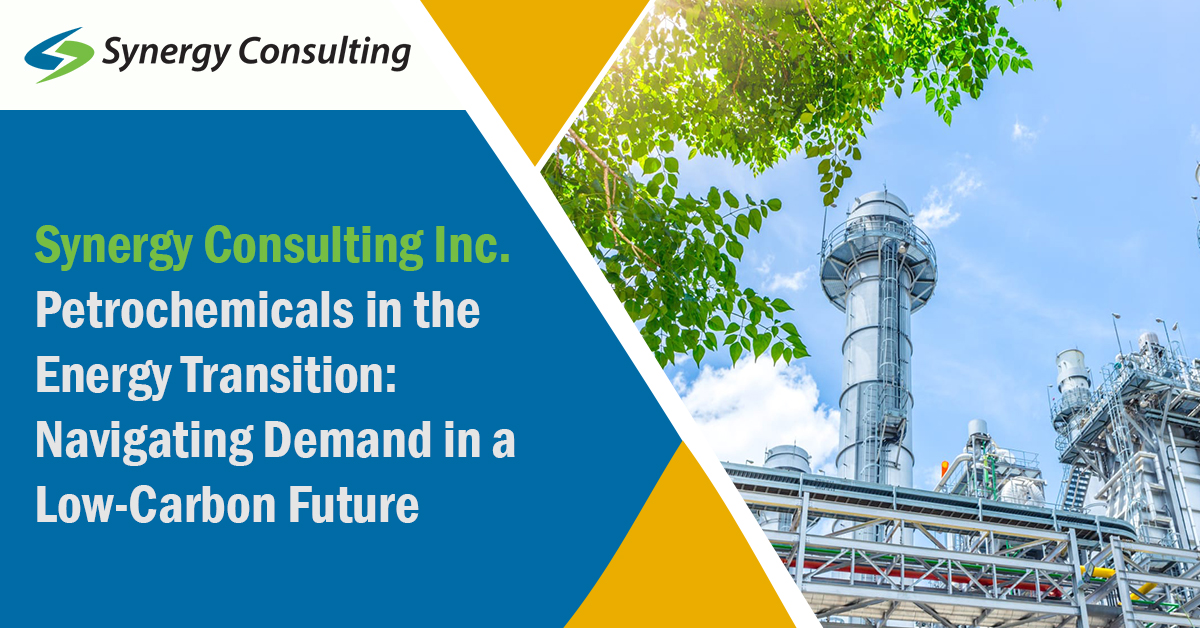Rajat Kapoor, Managing Director and Head of Synergy’s Oil Gas and Petrochemicals at Synergy Consulting, Inc., shares his views Petrochemicals in the Energy Transition: Navigating Demand in a Low-Carbon Future.
As the world pivots towards a low-carbon future, the petrochemical industry finds itself at a crossroads, balancing growth prospects with evolving regulatory and sustainability challenges.
The global energy transition is reshaping industries, compelling them to integrate clean energy solutions alongside their continued reliance on fossil fuels. While much of the focus has been on the deceleration of oil and gas consumption as primary energy sources, petrochemicals remain a critical segment with sustained demand projected well into the coming decades.
This sector, heavily dependent on fossil fuel-based feedstocks, produces essential chemicals that form the backbone of numerous industries, including plastics, fertilizers, and pharmaceuticals. Unlike transportation fuels, whose consumption forecasts have fluctuated, petrochemicals are expected to witness steady demand with fewer disruptions. The International Energy Agency (IEA) projects that petrochemicals will account for more than a third of oil demand growth by 2030, primarily driven by rising consumption in developing economies. In India, for example, demand for key petrochemicals such as ethylene and propylene is expected to increase two- to three-fold over the next two decades, fueled by urbanization, industrial expansion, and the drive for decarbonization.
However, this growth trajectory exists alongside increasing scrutiny of the industry’s environmental footprint. Governments and regulatory bodies worldwide are tightening climate policies, imposing restrictions on single-use plastics, and advancing circular economy initiatives. As a result, petrochemical producers must navigate complex sustainability imperatives while maintaining competitiveness.
The environmental impact of petrochemical production has become a focal point for policymakers, investors, and consumers. The industry accounts for approximately 18% of global industrial carbon emissions, with energy-intensive processes such as refining and steam cracking being major contributors. Key challenges include:
Regulatory Pressures: Carbon pricing mechanisms, plastic bans, and stricter emissions controls are being implemented globally, increasing production costs and pressuring profit margins.
Circular Economy and Recycling: Advances in chemical recycling, biodegradable alternatives, and closed-loop manufacturing systems threaten to reduce reliance on virgin petrochemical feedstocks, reshaping traditional demand patterns.
To read the full article, click on the link: https://lnkd.in/gCJC5jWE
